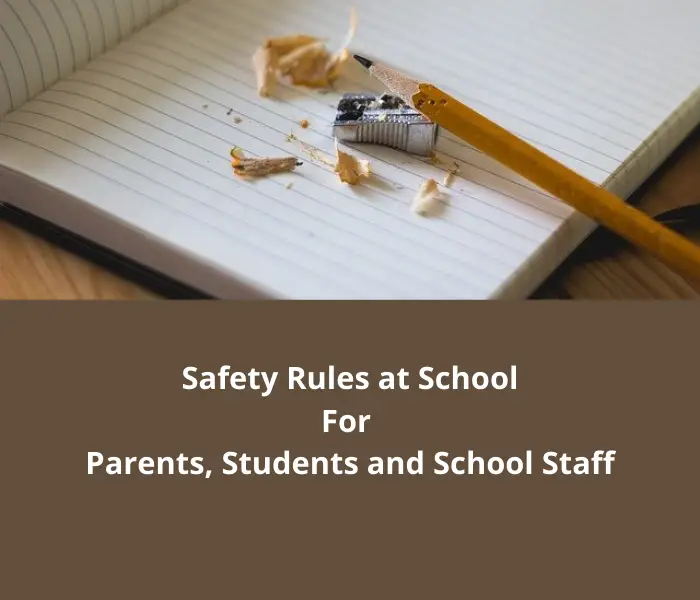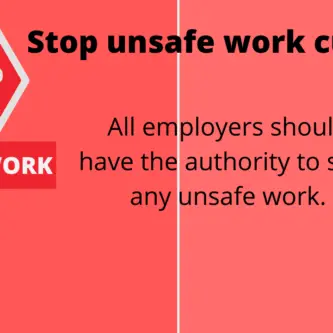Electricity is a powerful resource that we use every day, but it can also be dangerous if not handled properly.
Schools are filled with electrical appliances and equipment that require care and attention to prevent accidents.
To ensure that everyone stays safe, it’s important to follow electrical safety rules and tips at school.
For Students:
Be aware of your surroundings. Always look for electrical hazards in your surroundings, such as damaged outlets, frayed cords, or exposed wires. If you notice any hazards, report them to the appropriate person, such as a teacher or maintenance worker.
- Don’t overload outlets
Don’t plug too many appliances into one outlet. Overloading an outlet can cause it to overheat and potentially start a fire.
- Use electrical appliances properly
Make sure you read and follow the instructions for any electrical appliances you use at school. Don’t use appliances that are damaged or have frayed cords.
- Keep water away from electrical appliances:
Water is a conductor of electricity and can cause electric shock. Don’t use electrical appliances near water or with wet hands.
- Never touch electrical wires or appliances with wet hands:
Wet hands can conduct electricity and increase the risk of electric shock. Always make sure your hands are dry before using any electrical appliances.
- Ask your teacher:
It’s always better to ask if you’re unsure about something related to electrical safety at school. Here are some questions that students can ask their teachers or school staff:
- What should I do if I notice an electrical hazard at school?
- How many electrical appliances can I safely plug into one outlet?
- Can I use a damaged electrical appliance, or should I report it to someone?
- Is it safe to use electrical equipment near water sources, such as a sink or bathtub?
- What should I do if I accidentally touch an electrical wire or appliance and experience a shock?
By asking these questions, students can learn more about electrical safety and help prevent accidents at school.
It’s important to remember that electrical safety is everyone’s responsibility and that taking the time to ask questions can make a big difference in preventing accidents and injuries.
For School Staff:
- Inspect electrical equipment regularly. School staff should regularly inspect electrical equipment such as appliances, outlets, and wiring. Any damaged or worn equipment should be replaced or repaired immediately.
- Keep electrical equipment away from water. All electrical equipment should be kept away from water sources to prevent electric shock. Staff should also ensure that the areas around electrical equipment are kept dry.
- Don’t use damaged equipment. Damaged electrical equipment should never be used. Instead, it should be tagged and taken out of service until it can be repaired or replaced.
- Train staff on electrical safety. All staff members who work with electrical equipment should be trained on electrical safety procedures. This training should include information on identifying hazards, how to use equipment properly, and what to do in an emergency.
- Use appropriate protective equipment. Staff who work with electrical equipment should wear appropriate protective equipment such as rubber gloves, safety glasses, and insulated boots.
- Use high-quality electrical appliances: It’s important for school staff to use high-quality electrical appliances that have been tested and approved by recognized safety organizations, such as Underwriters Laboratories (UL) or the Occupational Safety and Health Administration (OSHA). High-quality appliances are less likely to malfunction or cause electrical hazards, and can help prevent accidents and injuries at school.
- Always disconnect power when leaving: To prevent electrical hazards and save energy, students and school staff should always disconnect power when leaving a room or building. This includes unplugging appliances and turning off switches or circuit breakers. Leaving electrical equipment on when it’s not in use can increase the risk of electrical fires and waste energy, so it’s important to make it a habit to always disconnect power when leaving a room or building.
- Use AFCIs and GFCIs: School staff should ensure that all electrical circuits in the school are protected by Arc-Fault Circuit Interrupters (AFCIs) and Ground-Fault Circuit Interrupters (GFCIs). AFCIs can detect and prevent electrical fires caused by arcing faults, while GFCIs can protect against electrical shocks by quickly shutting off power when a ground fault is detected. These safety devices are required by the National Electrical Code (NEC) and can help prevent electrical accidents and injuries at school.
- Hiring an authorized safety engineer to audit the school’s electrical system can help identify potential hazards and ensure that the electrical system meets safety standards. It’s important for school staff to prioritize electrical safety and take steps to prevent accidents and injuries at school.
Conclusion
Here’s a summary of the electrical safety rules and tips for both students and staff in a table format:
| Electrical Safety Rules and Tips | For Students | For School Staff |
|---|---|---|
| Inspect electrical equipment regularly | ✓ | ✓ |
| Keep electrical equipment away from water | ✓ | ✓ |
| Use high-quality electrical appliances | – | ✓ |
| Always disconnect power when leaving | ✓ | ✓ |
| Use AFCIs and GFCIs | – | ✓ |
| Hire an authorized safety engineer to audit | – | ✓ |
Following these rules and tips can help keep students and school staff safe while at school. It’s important to remember that electrical safety is everyone’s responsibility and that taking a few extra steps can help prevent accidents and injuries.
you work With Electricity! Don’t leave empty-handed!
Looking to stay ahead of the game in the world of electrical engineering? Subscribe to my YouTube channel and gain access to exclusive content you won’t find anywhere else!
The staff I recommend (Amazon Affiliate Links to products I believe are high quality):
- Economy 120 Volt/60Hz AC Power Source – Step-Down Voltage & Frequency Converters 1800W
- UNI-T Digital Multimeter Tester UT139C
- 50-Amp Extension Cord for RV “100ft”
- Voltage Stabilizer 110/220v
- Hair Dryer “best selling“
- TOSHIBA EM131A5C-BS Countertop Microwave Ovens
Disclaimer: This contains affiliate links to Amazon products. I may earn a commission for purchases made through these links.


